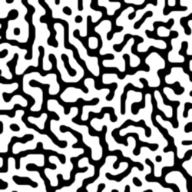Or more importantly, it is given that n cannot be equal to 1 and has to start as 2?
If yes, to either case, is there any change in method required in step 2 and in step 3, like should we assume n = k and then n = k + 2 instead of k + 1?
In mathematical induction, can we take n = 2 in the first step if n is not equal to 1?
2017-08-20 9:22 pm
回答 (2)
2017-08-20 10:32 pm
An inductive proof does not have to start at 1.
If you want to proof that some statement P(n) is true for n=17, 18, 19, 20, 21, 22, ...
the first step would be show it is true for n=17. Then you would have to show that if it is true for n=k where k>17, then it will also be true when n=k+1.
If you want to proof that some statement P(n) is true for n=17, 18, 19, 20, 21, 22, ...
the first step would be show it is true for n=17. Then you would have to show that if it is true for n=k where k>17, then it will also be true when n=k+1.
2017-08-20 10:06 pm
Normally, in mathematical induction, the starting value is n = 1. However, the starting value of n in some questions may be 2, 3 or a greater positive integer.
No matter what the starting value of n is, there is no change in method in step 2 in step 3.
For example: Prove that (n-2)(n-1)(2n-3) is divisible by 6 for any positive integer greater than 2.
In the above question, the starting value of n is 3, but not 1.
Solution:
P(n): (n-2)(n-1)(2n-3) is divisible by 6 for any positive integer greater than 2
Step 1 : Prove that P(3) is true.
Steps 2 and 3 : Assuming that P(k) is true, then prove that P(k+1) is also true.
According to steps 1, 2 and 3 :
Because P(3) is true, P(3+1) = P(4) is true.
Because P(4) is true, P(4+1) = P(5) is true.
Because P(5) is true, P(5+1) = P(6) is true.
…… and so on to n = infinite
Obviously, it is incorrect to change "n=k+1" to "n=k+2".
No matter what the starting value of n is, there is no change in method in step 2 in step 3.
For example: Prove that (n-2)(n-1)(2n-3) is divisible by 6 for any positive integer greater than 2.
In the above question, the starting value of n is 3, but not 1.
Solution:
P(n): (n-2)(n-1)(2n-3) is divisible by 6 for any positive integer greater than 2
Step 1 : Prove that P(3) is true.
Steps 2 and 3 : Assuming that P(k) is true, then prove that P(k+1) is also true.
According to steps 1, 2 and 3 :
Because P(3) is true, P(3+1) = P(4) is true.
Because P(4) is true, P(4+1) = P(5) is true.
Because P(5) is true, P(5+1) = P(6) is true.
…… and so on to n = infinite
Obviously, it is incorrect to change "n=k+1" to "n=k+2".
收錄日期: 2021-05-01 14:09:40
原文連結 [永久失效]:
https://hk.answers.yahoo.com/question/index?qid=20170820132258AAFtAiz

